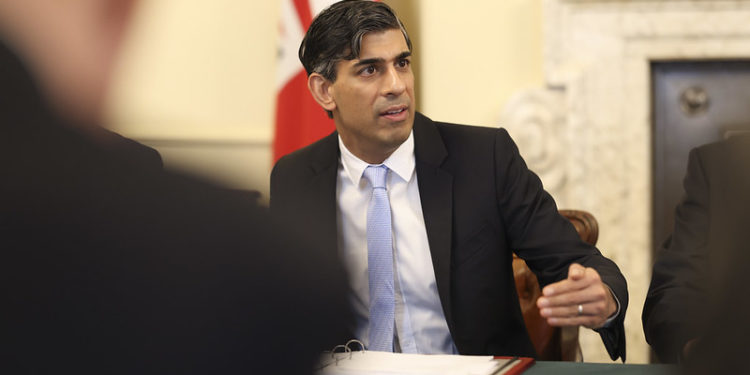Britain has officially entered a recession, according to data released on Thursday, dealing another significant blow to Prime Minister Rishi Sunak, whose Conservative party is anticipated to face defeat in an upcoming general election.
The Office for National Statistics (ONS) announced that Gross Domestic Product (GDP) contracted by 0.3 percent in the fourth quarter of 2023, following a 0.1 percent contraction in the preceding three months.
While economists suggest the recession may be short-lived, this news presents a major setback for Sunak, who has emphasized economic growth as a central priority.
The Conservative party currently lags behind the main opposition Labour party in opinion polls.
As the nation braces for a general election expected later this year, voters are participating in two by-elections today, with the Conservatives fearing losses in once-strong areas like Wellingborough in central England and Kingswood in the southwest.
Analyst Ruth Gregory from Capital Economics remarked, “The news that the UK slipped into technical recession in 2023 will be a blow for the prime minister on a day when he faces the prospect of losing two by-elections.”
“However, this recession is relatively mild, and timely indicators suggest it is already nearing an end.”
All major sectors experienced declines in the fourth quarter, with manufacturing and construction being particularly affected.
The economy saw minimal growth last year, expanding by just 0.1 percent, a sharp decline from the 4.6 percent growth seen in 2022, according to the ONS.
This announcement coincided with Japan also entering a recession on the same day.
Henry Cook, senior economist at MUFG Bank, commented, “It was a disappointing set of GDP figures, but there’s no reason to panic just yet. The labour market remains strong, and consumer confidence has gradually improved over the last 18 months.”
Despite inflation standing at 4.0 percent, twice the Bank of England’s target rate, Finance Minister Jeremy Hunt asserted that the economy is on the path to recovery.
“High inflation is the single biggest barrier to growth,” Hunt stated, emphasizing the importance of sticking to the plan of cutting taxes on work and business to bolster the economy.
Chancellor of the Exchequer Hunt is expected to announce tax cuts in the upcoming budget, aiming to narrow the gap with Labour.
However, with the Bank of England’s main interest rate at a 16-year high of 5.25 percent, many voters are struggling with soaring mortgage repayments.
Reacting to the GDP data, Labour criticized the government’s management of the economy.
“This is Rishi Sunak’s recession, and the news will be deeply worrying for families and businesses across Britain,” said Rachel Reeves, Labour’s finance spokeswoman, noting that Sunak’s pledge to deliver growth lies in tatters.
While UK inflation has declined since reaching a 41-year peak of 11.1 percent in October 2022, energy and food prices remain high.
















